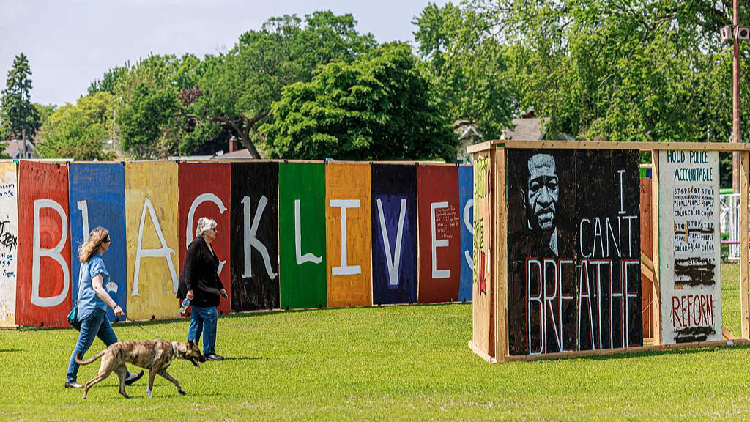George Floyd's Legacy in the U.S.: Five Years After His Death and Its Ongoing Impact
Five years after his death, George Floyd's complex legacy continues to shape America's conversations on race and justice.

Americans gathered across the country on Sunday to mark five years since the death of George Floyd, a moment that ignited a global reckoning with racial injustice and police brutality. In Minneapolis, where Floyd was killed during an encounter with police, local residents and visitors assembled at the now-iconic George Floyd Square. The intersection, still decorated with vibrant murals and tributes, served as a somber backdrop as people reflected on Floyd's legacy and the nation's progress—or lack thereof—since 2020.
The anniversary comes at a pivotal time in the United States, as President Donald Trump, recently returned to office, has reversed several reforms introduced in the wake of Floyd’s killing. These policy changes include the curtailment of civil rights investigations into police departments and a renewed crackdown on diversity hiring and equity initiatives. Many civil rights activists have expressed concern that these moves represent a significant setback for efforts aimed at addressing systemic racism within American institutions.
At the same time, the Black Lives Matter movement, which once galvanized millions across the globe in protest, has seen its public support wane. The social and political momentum that propelled calls for justice and police reform appears to have diminished, raising questions about the long-term impact of the protests that spread during the COVID-19 pandemic. Some critics argue that the promises of change made in the summer of 2020 have not translated into substantive progress, while others note that the backlash against BLM influenced the current political landscape.
Despite the challenges, local community members and international supporters continued to honor Floyd’s memory. Memorial events in Minneapolis drew dozens who left flowers, lit candles, and gathered for live music and spoken word performances. Emotional moments were shared as people paid respects at the site where Floyd’s final moments were captured on video, an image that continues to resonate worldwide. "It's important to show that Floyd's death wasn’t just a moment in time," said Jamie Dencklau, a Minneapolis resident, expressing frustration over the prevailing political climate and concerns for the future of inclusivity in the US.
Other cities, including Chicago and Dallas, also planned smaller commemorative events, though large rallies were notably absent this year. The prevailing sentiment among many attendees was one of determination mixed with exhaustion. The theme for the Minneapolis gathering, “The People Have Spoken,” was inspired by a visit from Nelson Mandela’s grandson and serves as a testament to the ongoing fight for justice, according to Floyd’s family members. As the country reflects on five years since an event that sparked both hope and upheaval, the debate over Floyd's legacy—and the direction of racial justice in America—remains as urgent and unresolved as ever.




